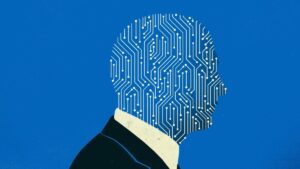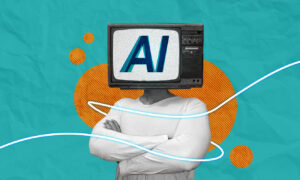Artificial Intelligence Ethics and the Diminishment of Human Creativity

The Challenge of AI Ethics in a Reflective World
The Impact of AI on Reality
We are navigating an era where artificial intelligence (AI) is increasingly mimicking human behavior rather than enhancing it. What was once envisioned as a powerful tool to expand our capacity is often creating a distorted mirage of reality. Instead of progress, we find ourselves gazing into a polished mirror that may strip away our individuality and creativity.
AI, in its current form, does not innovate; it predominantly imitates, remixing existing data rather than creating something new. In this age of artificial inference, machines rely on human intelligence to function and understand the world. As we continue to refine these "mirrors," we risk losing sight of our own essence and unique identities, potentially mistaking these reflections for original existence.
The Role of Friction in Fostering Creativity
Innovation flourishes through challenge and friction. It is in the struggle that we discover new ideas and solutions. Historically, major advancements—whether in aviation, governance, or technology—have emerged from moments of tension and discord. To eliminate friction in the design of AI is to undermine the very foundation that drives creativity and progress.
When we develop AI that merely echoes our desires and preferences, we strip away the diverse facets that define us. Instead, we should cultivate systems that provoke thought and inspire novel perspectives. Acknowledging the importance of discomfort can lead to a more robust human-AI relationship that encourages growth and resilience.
Familiarity Versus Progress
The inclination to create AI systems that resemble human interfaces often prioritizes familiarity over genuine advancement. For instance, many technologies, like self-driving cars and virtual reality devices, continue to incorporate elements from previous generations, limiting their potential.
- Examples of Familiar Designs:
- Apple’s Vision Pro offers a familiar interface rather than a revolutionary experience.
- Tesla’s Full Self-Driving technology still features a steering wheel largely because users expect it, not necessarily because it’s practical.
Thus, the focus remains on comfort instead of genuine innovation, making it imperative that we reconsider our approach to design. Nature itself demonstrates that better solutions can arise from adapting to and embracing different functionalities.
The Consequences of Narcissism in AI Development
Mirrors not only reflect but also shape perceptions of reality. This phenomenon leads to a form of techno-narcissism where we become enamored with our polished images, losing touch with our complexities. This "cognitive dysmorphia" occurs when we find the machine’s ideal representation of us to be more appealing than our authentic selves.
Social media’s emergence has exemplified this phenomenon, acting as the first large-scale system of reflection that has trained individuals to curate their identities for algorithmic acceptance. Platforms like Instagram and Facebook motivate users to conform to specific standards of desirability, further complicating our sense of individuality.
Worrisome Trends
- Mental Health: Reports indicate high levels of distress among social media users, specifically among teenagers. Surveys show significant rates of sadness and hopelessness linked to heightened social media engagement.
- Algorithmic Influence: Studies have demonstrated that algorithm-driven platforms may facilitate harmful behaviors and content, creating echo chambers that can amplify distress.
The Dangers of Echo Chambers in AI Ethics
The psychological impact of these digital mirrors is extensive. With the normalization of synthetic reflections, we risk creating societal structures that are hollow and void of authentic connection. Research shows an alarming connection between constant engagement with curated content and escalating feelings of inadequacy among users.
The evolution of AI models further compounds this issue, as they often learn from biased data. The code that runs today’s AI, in many cases, is generated by earlier AI models, resulting in a cycle that risks replicating existing biases rather than mitigating them. This cycle could have profound implications for critical sectors like healthcare, finance, and governance, further embedding misconceptions into our societal framework.
The Urgent Need for Ethical Reforms
Addressing these challenges necessitates a proactive approach to AI development:
- Prioritize Authenticity: Design systems that encourage genuine engagement rather than predicted conformity.
- Demand Transparency: Ensure clarity regarding AI training data to address bias concerns.
- Encourage Practical Innovation: Support AI that interacts with the complex truth of human experiences.
- Uphold Authorship: Protect creators and ensure that originality is recognized.
- Value Diversity: Reward innovative thinking that deviates from established models, promoting transformative ideas.
A fundamental shift in how we perceive and construct AI technology is essential. We must strive to build intelligent systems that engage with the rich tapestry of human existence rather than reflect a narrow, simplified version of it.






